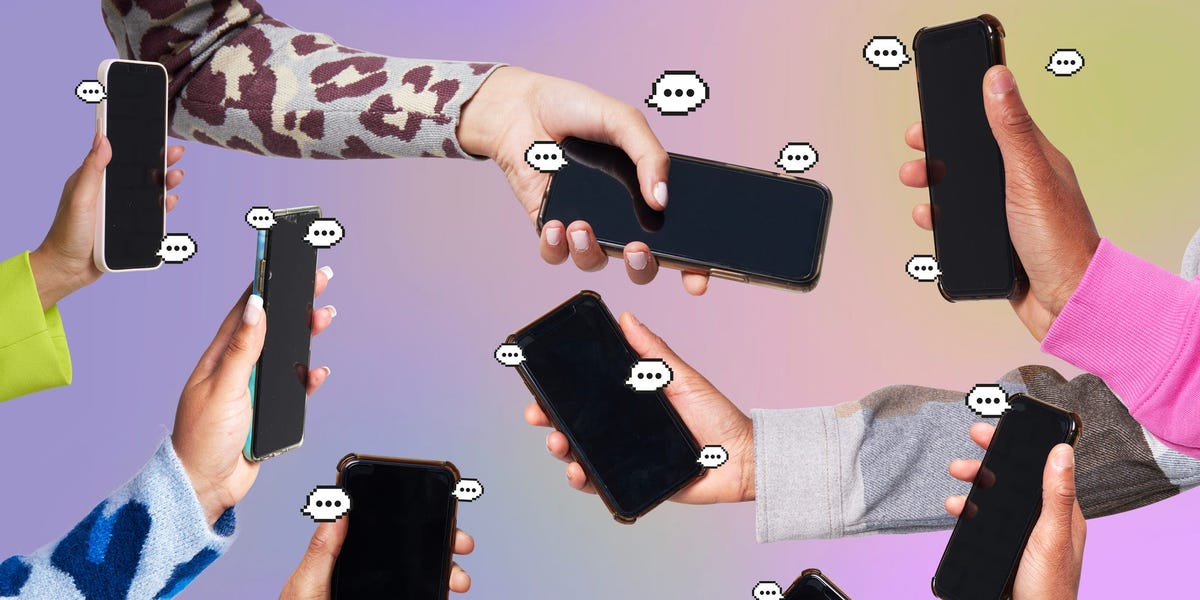Pictured recipe: Lemon, Cucumber & Mint Infused Water
- Small daily habits can add up and quietly impact your energy, mood and health.
- Change one habit at a time—consistency helps new behaviors become automatic.
- Stacking new habits onto existing ones makes healthy changes easier to maintain.
Everyone has a few habits that might be holding them back from feeling their best. Whether it’s skipping sleep, snacking late or barely touching your water bottle, small daily choices can quietly chip away at your energy, mood and long-term well-being. The fix doesn’t have to be drastic—start with one change, practice it daily, and build from there.
Here are 10 common habits that can work against your health—and two easy ones you can start changing today.
1. Not Drinking Enough Water
Water accounts for 60% of your body, so it’s not too surprising that drinking water benefits your total body health. Staying well-hydrated supports clear thinking, stable mood and overall cognitive performance. Research links even mild dehydration to declines in memory, focus and alertness in older adults, while consistent fluid intake helps maintain both mental and physical energy throughout the day.
Keeping up with your fluids helps your skin stay supple, helps your body cool down when it’s hot, allows your muscles and joints to work better and helps clean toxins from your body via your kidneys.
So, how much water should you be drinking? Adult men need about 13 cups per day of fluid, and adult women need about 9. That recommendation includes 2 1/2 cups of fluid from foods and also counts the fluid in coffee, tea and other soft drinks toward your hydration needs.
But because one size doesn’t fit all, the best way to know if you’re adequately hydrated is to monitor your urine color: If it’s light yellow (the color of lemonade or straw), that means you’re probably drinking enough.
2. Eating Late at Night
There are a couple of reasons to consider having dinner earlier. Researchers suspect that eating dinner later and close to bedtime changes how the food is digested, including how fat is processed. This could lead to weight gain.
Another reason is that you may sleep better. One study suggests that eating close to bedtime can disrupt sleep quality. And if you have gastroesophageal reflux disease (GERD), research suggests that eating within three hours of bedtime makes acid reflux worse through the night.
3. Not Getting Enough Exercise
Physical activity offers so many health benefits it’s hard to list them all (but we’ll try). Exercise helps manage weight, improves brain health, strengthens bones, muscles, the heart and lungs, supports better sleep, supports mental health and lowers the risk of depression and anxiety, sharpens focus and judgment, improves daily function, prevents falls, helps regulate blood sugar and reduces the risk of chronic disease.
Being more active can add years to your life—and even small changes make a difference. One study found that if everyone were as active as the top 25% of adults, Americans over 40 could live an average of 5.3 years longer. The biggest boost came for those who were least active: adding just an hour of walking a day translated to roughly six extra hours of life expectancy.
Health experts recommend that all healthy adults perform moderate exercise for at least 30 minutes five days a week or vigorous-intensity activity for at least 20 minutes three days a week. They also recommend muscle-strengthening activities at least twice a week.
It’s important that you start where you’re at and progressively increase the intensity and frequency of your exercise over time. One big mistake people make is going all out from the beginning and quickly burning out. Set big goals but start small and work up to your bigger goals.
4. Skimping on Sleep
You know that falling short of sleep is a major no-no, but why—what’s the big deal? Not getting enough shut-eye can impact a whole slew of things. For starters, it can compromise your immune system, as well as your judgment and ability to make decisions—which can result in making mistakes or being injured.
Sleep deficiency is also linked to several chronic health problems, including heart disease, high blood pressure, kidney disease, diabetes, stroke, obesity and depression. Being sleep-deprived may make it harder for you to lose weight if you’re following a weight loss plan—and more likely that you’ll give in to that sweet temptation tomorrow.
While there is no magic number of hours to sleep (and the number changes with age), sleep experts recommend 7 to 8 hours of sleep each night for adults. It’s important to listen to your body and try to get the amount of sleep that your body needs to function at its best.
Pictured recipe: Air-Fryer Turkey Stuffed Peppers
5. Eating Too Much Sodium
About 90% of Americans eat about 1,000 milligrams more sodium each day than we should. Restaurant foods and processed foods both tend to be very high in sodium. One of the easiest ways to reduce your sodium intake is to cook at home using fresh ingredients. To decrease your sodium intake even further, try boosting the flavor of food cooked at home with herbs and spices rather than salt.
6. Choosing Foods Because They ‘Sound Healthy’
More and more food labels are sporting health benefits on their labels. If such claims lure you in, know that just because a product lacks fat or gluten or carbs doesn’t necessarily mean it’s healthier. For example, fat-free products often deliver more sugar than their counterparts to make up for the flavor the product lacks from having the fat removed—and many full-fat options are the healthier choice.
Avoid being duped by a healthy-sounding label claim by comparing the nutrition facts panels and ingredient lists across brands of the same food category. It’s worth stating that some of the healthiest foods at the grocery store don’t have any packaging or branding—like fruits and vegetables.
Pictured recipe: Zucchini Noodles with Quick Turkey Bolognese
7. Eating Lunch at Your Desk
It’s all too easy to munch on your midday meal desk-side, but according to a research study, distracted eating was correlated to higher body weight. Researchers recommend shutting off devices and taking a break from work so that you can focus on what you’re eating, enjoying your food and noticing when you’re starting to feel full.
8. Cooking Everything in Olive Oil
Even though olive oil is packed with heart-healthy antioxidants (called polyphenols) and monounsaturated fats, there are times when it’s not the best choice for cooking. Why? Because olive oil has a lower smoke point than some other oils (that’s the point at which an oil literally begins to smoke, and olive oil’s is between 365°F and 420°F).
When you heat olive oil to its smoke point, the beneficial compounds in the oil start to degrade, and potentially health-harming compounds form. So if you’re cooking over high heat, skip it and choose a different oil.
When is olive oil a good idea? It’s a great choice for making salad dressing or sautéing vegetables over medium heat.
9. Skipping Dessert
You may think you’re doing yourself a favor by skipping sweet treats, but studies show that feeling deprived—even when you’re eating enough—can lead to overeating later. Making any food completely off-limits only makes it more tempting. Allowing yourself an occasional sweet can actually help you maintain balance and enjoy a healthy eating pattern long-term.
10. Not Changing or Sanitizing Your Kitchen Sponge Frequently Enough
It’s probably not something you think about often, but your kitchen sponge can harbor bacteria, mold and yeast—and some of these microbes can make you sick. Using the same sponge to wipe down the sink, counters, stove and fridge only spreads them around. To keep things cleaner, disinfect your sponge daily by microwaving it while wet for two minutes, and replace it at least every two weeks.
How to Build Better Habits That Last
Changing your daily routine can feel daunting, but science shows there are simple ways to make new habits stick. One study found that practicing a new behavior consistently—and in the same setting—helps it become automatic.
Start small. If you want to eat more vegetables, pick one meal—like lunch—and commit to adding a serving each day. Lunch becomes your trigger to eat vegetables, and once that feels natural, you can build from there.
Another method is habit stacking, or linking a new behavior to one you already do. For example, drink a glass of water right after brushing your teeth. You can also set up the cue ahead of time—fill your glass at night so it’s ready when you wake up.
There’s no perfect formula for change, and slip-ups are part of the process but setting specific, written goals boosts your chances of success. Focus on one change at a time and repeat it daily—consistency is what rewires your brain and turns new actions into lasting habits.
Our Expert Take
The habits you repeat every day—good or bad—shape your long-term health more than any quick fix ever could. Small behaviors like skipping sleep, sitting too much or eating late may not seem like a big deal in isolation, but over time they can take a real toll on your heart, metabolism and mental well-being.
The flip side is encouraging: those same small habits are also the easiest to change. Replacing one counterproductive routine with a healthier one—like walking after dinner instead of scrolling your phone—pays off faster than most people expect. The goal isn’t to overhaul your life overnight, but to keep stacking small wins that add up to better energy, resilience and overall health.









